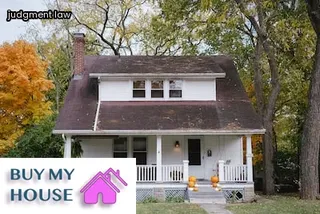Understanding preforeclosure is a crucial step to take before letting your Connecticut home go into foreclosure. Preforeclosure is the period of time between when a homeowner defaults on their mortgage and when the home enters into foreclosure.
There are several important things to consider during preforeclosure, including working with the lender to find solutions that may help you avoid going into foreclosure altogether. Furthermore, it’s important to review your loan documents closely, as they may contain options for avoiding foreclosure.
Additionally, it’s wise to contact a lawyer and/or housing counselor who can provide guidance regarding the best way to proceed. Finally, it’s essential to be aware of potential scams that target homeowners in preforeclosure; these scams may claim they can help save your home or offer loans at lower interest rates but end up costing you much more than originally promised.
Taking the time to understand preforeclosure and all its implications before letting your Connecticut home enter into foreclosure will help ensure that you make an informed decision about what’s best for you and your family.

When a homeowner in Connecticut can no longer make mortgage payments, the foreclosure process begins. Foreclosure is a legal process where the lender takes possession of the property to recover the money they are owed.
The lender then sells the home and uses the proceeds to pay off any remaining debt. In Connecticut, lenders must file a complaint with the court and serve notice to the homeowner before foreclosure proceedings begin.
This gives homeowners time to contact their lender and discuss alternatives such as loan modifications or repayment plans. Homeowners should be aware that once foreclosure proceedings start, they have very limited options for stopping it.
It is important for homeowners to understand when foreclosure begins so that they can take steps to protect their rights and avoid losing their home if possible.
Falling behind on mortgage payments can have serious consequences, and if your Connecticut home is facing foreclosure it's important to understand what you could be up against. Delinquent payments can incur late fees, higher interest rates, and additional costs down the line.
If a borrower defaults on their loan, their credit score can take a significant hit, making it harder to qualify for other loans in the future. Additionally, it may become difficult to obtain employment or rental housing due to the negative impact on your credit report.
Foreclosure proceedings can also lead to legal action taken against the borrower in order to recover lost funds from lenders. It's important to understand the potential ramifications of missed mortgage payments and speak with an expert before deciding whether or not to let your Connecticut home go into foreclosure.

When it comes to foreclosure in Connecticut, homeowners should be aware of breach letters. These are formal notices that a lender sends out when a borrower has violated the terms of the loan agreement.
Breach letters typically outline what the borrower must do to remedy the situation, such as making an overdue payment or providing proof of insurance. They also include information about the foreclosure process and the consequences if it goes through.
If a breach letter is received, it is important for homeowners to read it carefully and take action quickly to resolve their financial issues before their home goes into foreclosure. Knowing what to expect from breach letters can help ensure that all steps are taken to prevent this difficult situation from occurring in the first place.
It is important for Connecticut homeowners to understand their rights and options under federal legislation relating to foreclosure. The Coronavirus Aid, Relief and Economic Security (CARES) Act passed in 2020 has enabled lenders to delay foreclosures in certain circumstances.
This law requires most lenders that participate in certain federal loan programs to limit or postpone foreclosures for 120 days if the borrower’s mortgage was current as of February 1, 2020. Homeowners should be aware of their rights and seek advice from a qualified professional before making any decisions about foreclosure.
Additionally, borrowers who are facing financial hardship may be eligible for forbearance or other relief programs offered by their loan servicer, allowing them to temporarily reduce or suspend their mortgage payments during this period of economic distress. Finally, it is important to note that while the CARES Act provides relief from foreclosure proceedings, it does not provide relief from other obligations associated with a mortgage such as taxes and insurance payments.

It is important to remember that consulting an attorney should be the first step you take when considering foreclosure on your Connecticut home. An experienced foreclosure attorney can provide invaluable advice and guidance throughout the entire process, helping you make informed decisions along the way.
It is also important to understand that a lawyer can help ensure that all of your rights are protected during the foreclosure process. They can provide valuable insight into the type of foreclosure options that may be available to you and what steps need to be taken in order for you to make informed decisions about how best to proceed with your case.
In addition, they can help negotiate with lenders in an effort to reduce or delay payments, as well as potentially reducing or eliminating some of the fees associated with foreclosures. With their assistance, you can be sure that your Connecticut home will remain safe from foreclosure and that you will not be left without any other options.
Connecticut homeowners facing foreclosure may be able to avoid the process by exploring options and resources that can help them keep their home. Homeowners should consider a loan modification, which is a change to an existing mortgage loan agreement.
This could include an extension of repayment periods, reducing the interest rate or principal balance, or changing the type of loan. The Connecticut Housing Finance Authority (CHFA) offers programs for eligible homeowners that provide counseling and assistance with loan modifications.
In addition, other opportunities may be available through local housing counselors and lenders. Forbearance agreements are another option that allows homeowners to temporarily suspend payments while they work out a long-term solution with their lender.
Finally, it is important for homeowners to understand their rights in the foreclosure process so they know how best to protect themselves if they do end up in foreclosure. Exploring all available options before letting your Connecticut home go into foreclosure can make all of the difference in keeping it safe and secure.

If you are facing foreclosure on your Connecticut home, it is important to be aware of the potential risks and pitfalls. Working with an experienced foreclosure attorney can help you understand your options and assess the potential costs associated with them.
Preforeclosure is typically a period of time where the homeowner has defaulted on their mortgage payments and the lender has started the process of foreclosure. It may be possible to negotiate a settlement with the lender during this period, although this should be done with caution as it may have tax consequences or other legal consequences that should be discussed with a professional.
During this period, it is important to stay in contact with your lender and keep track of all paperwork related to the loan, including any notices sent by your lender. Additionally, homeowners should explore their options for refinancing or modification before they face complete foreclosure.
This can allow homeowners to potentially keep their property while avoiding bankruptcy or other financial repercussions. Lastly, familiarizing yourself with any state laws regarding foreclosures can help ensure that you understand your rights and obligations as a homeowner throughout the process.
When it comes to avoiding foreclosure in Connecticut, there are a few key strategies to keep in mind. First, it is important to understand the foreclosure process and the rights and responsibilities associated with it.
Knowing what your lender's timeline is and when they may initiate foreclosure proceedings can help you avoid being caught off guard. Second, make sure that you stay in contact with your lender and provide them with any necessary information or documents they request.
This will demonstrate that you are taking an active role in trying to resolve the issue. Third, if possible, explore other options such as loan modifications or refinancing before letting your home go into foreclosure.
Finally, seek out professional help from organizations like legal aid or credit counseling agencies that can assist you in understanding the process and finding solutions that work for you.

If you are a homeowner in Connecticut facing foreclosure, there are options available to help you avoid or delay the process. One of the most important steps is to contact your lender and explain your situation, as they may be able to work with you on an alternate payment plan or loan modification.
You should also explore other ways to get financial assistance such as forbearance, repayment plans, and refinancing. If you have already missed payments, look into loan reinstatement which is when all past due payments are made in one lump sum.
You may also qualify for government programs like the Making Home Affordable Program which provides foreclosure prevention counseling and assistance for eligible homeowners. Researching these various options can help you determine what’s best for your specific needs and circumstances.
If a foreclosure seems imminent, contact a housing counselor or attorney who can help review all possible options with you in more detail.
Before a Connecticut homeowner is faced with foreclosure, they should be aware of the repayment plans and other solutions available during the preforeclosure period. Homeowners are able to make up missed payments over time or even modify their loan to lower the monthly payment.
In some cases, this can even include refinancing with longer terms or reducing the interest rate. Homeowners may also be able to work out a forbearance agreement with their lender, which allows them to temporarily reduce or suspend mortgage payments for a specified period of time.
It is important for homeowners to explore all of their options and talk to a housing counselor so they can make an informed decision about how best to proceed.

When it comes to the foreclosure process in Connecticut, there are a few options for homeowners who are struggling with their payments. Forbearance and loan modification programs provide relief for those facing financial hardship and can help keep them from having to go into foreclosure.
The main difference between forbearance and loan modification is that forbearance gives borrowers a temporary break from making their mortgage payments, while loan modification involves restructuring the terms of the loan itself. Forbearance plans allow borrowers to suspend or reduce their mortgage payments for a set period of time, often up to twelve months, without penalty or additional fees.
During this time, interest still accrues but is not added to the principal balance of the loan. Loan modifications involve permanently changing the terms of the loan, such as reducing interest rates or extending the repayment period on an existing mortgage.
This can lower monthly payments and make it easier for borrowers to stay current on their mortgage payments. It is important to understand both options when considering what steps to take in order to avoid foreclosure in Connecticut.
Foreclosing on a Connecticut home is an unfortunate situation that no one wants to face. Before it gets to that stage, however, there are certain steps you can take to avoid foreclosure.
To start, contact your lender as soon as possible and discuss your financial situation with them. You may be able to negotiate a repayment plan or refinance the loan at a lower interest rate.
Additionally, consider applying for a loan modification, which can help make your mortgage payments more manageable. You could also look into government assistance programs such as Home Affordable Refinance Program (HARP) or Home Affordable Modification Program (HAMP).
These programs provide financial aid and other resources that can help keep your home from going into foreclosure. Lastly, if nothing else works, try seeking legal advice from a bankruptcy attorney who specializes in foreclosures.
They may be able to advise you of any additional options available in helping you avoid foreclosure on your Connecticut property.

In Connecticut, allowing a home to go into foreclosure has significant financial implications that should not be taken lightly. Before choosing foreclosure, it is important to understand the process and evaluate the implications of this decision on credit score, debt-to-income ratio, taxes, and other finances.
Foreclosure can cause credit scores to drop significantly. It is also important to note that any unpaid debt connected to the foreclosed property will remain after the foreclosure is completed.
Additionally, a homeowner who allowed their property to go into foreclosure may be subject to paying taxes on any forgiven debt due to the fact that it is considered income by the Internal Revenue Service (IRS). Lastly, although a homeowner does not have to pay back lenders for a foreclosed home in Connecticut, they may still owe unpaid mortgages or past due balances from their original loan agreement.
Before deciding whether or not a home should go into foreclosure in Connecticut, it is important for homeowners to consider any potential financial implications they may face if they do so.
Foreclosing on your home in Connecticut can be a difficult decision to make. It is important to understand the pros and cons of this course of action before taking such a drastic measure.
On the upside, it can help you avoid any additional late fees or fines which may have otherwise accumulated due to missed payments. Additionally, it can provide you with the chance to start over financially and focus on rebuilding your credit.
On the other hand, there are some drawbacks associated with foreclosure in Connecticut as well. Foreclosure will stay on your credit report for several years, making it more difficult to obtain loans or other credit products in the future.
Furthermore, it could limit your options if you decide later on that you want to purchase a new home. Ultimately, deciding whether or not to let your Connecticut home go into foreclosure is an incredibly personal choice that should only be made after careful consideration of all the facts and potential outcomes.

After a Connecticut home has gone into foreclosure, the effects on one's credit score can be devastating. While it may take several years to rebuild credit, there are some steps that can be taken right away to start the process.
One of the most effective ways is to begin making payments on time for all bills and debts. This will show lenders that you are committed to paying your debts, and will also help raise your credit score over time.
Additionally, it is important to keep balances low on any existing lines of credit or loans. Instead of relying on maxing out available lines of credit, focus on paying down debt as much as possible in order to improve your creditworthiness.
Finally, another helpful way to build up a good credit score is to reduce inquiries for new accounts since this signals risk-taking behavior which could hurt your chances at getting approved for a loan in the future. Taking these simple steps will help ensure success in rebuilding your credit after a Connecticut house goes into foreclosure.
When facing preforeclosure in Connecticut, it is important to be aware of predatory lenders who may try to take advantage of the situation. It is essential for homeowners to do research on potential lenders before entering into any agreements in order to protect themselves from shady practices such as unreasonable fees or interest rates.
Before signing any documents, homeowners should make sure they fully understand them and all the terms they are agreeing to. It is also important to ensure that all paperwork is properly filled out and accurate.
If a homeowner doesn't feel comfortable or confident with a lender, they should look for alternative options or consult an attorney or another financial advisor before signing anything. Additionally, Connecticut homeowners should familiarize themselves with their rights and responsibilities under the state's foreclosure laws so they can make educated decisions about which course of action best serves their needs.

When facing foreclosure on a Connecticut home, many homeowners may be able to avoid it by refinancing. Refinancing can stop the foreclosure process, lower monthly payments, and potentially even save credit scores.
During preforeclosures, when the homeowner is at least 90 days behind on payments, lenders may be amenable to negotiation. Through refinancing, the lender may agree to waive all or part of the late payments and extend the loan repayment period.
This could help homeowners make more manageable payments while also lowering their interest rates. Additionally, refinancing during preforeclosures can help restore credit scores faster than if they let their property go into foreclosure since missed payments don't stay on credit reports for as long as repossessions do.
Homeowners must weigh their options carefully and decide what makes sense for them financially before entering into a new agreement with their lender. Ultimately, refinancing during preforeclosures could help Connecticut homeowners keep their homes and maintain good credit ratings.
When considering stopping a Connecticut property from going into foreclosure, it is important to understand the risks involved. Foreclosure can have serious financial consequences, and while attempting to stop it, you could end up with an even higher debt than before.
If you are unable to make your mortgage payments on time and face foreclosure, the lender has the right to take possession of your property in order to sell it and recover their losses. While this type of action may seem extreme, lenders are often willing to work with homeowners in order to avoid foreclosing on their property.
However, if you fail to meet the requirements of a repayment plan or loan modification agreement put forth by your lender, they could still proceed with foreclosure proceedings. Therefore, it is important that you understand exactly what is required of you before making any drastic decisions about your Connecticut home's future.
In addition, homeowners should be aware that lenders may also sue for unpaid balances if they choose to pursue foreclosure instead of loan modifications or other alternatives. It is essential that homeowners consider all potential risks associated with stopping their home from going into foreclosure before making any decisions.

Facing foreclosure in Connecticut can be a difficult process to go through. It is important to understand the timeline of when a home goes into foreclosure in order to make the best decisions possible.
First, your mortgage lender must file an action in court declaring that you are in default of your loan. Once this is done, the court will issue a summons and complaint, which must be served on you.
You then have 20 days from the date of service to respond to the complaint with an answer admitting or denying each allegation made by the lender. If you do not respond within this timeframe, a default judgment can be entered against you and your home may be put up for sale at auction.
The entire process usually takes about two months from start to finish, although it can vary depending on specific circumstances. It is important to speak with a lawyer experienced in foreclosure proceedings as soon as possible so that you can understand your rights and options before it’s too late.
In Connecticut, the foreclosure process typically takes between 90 and 120 days. During this time, homeowners have the right to stay in their home without making mortgage payments.
However, during that time there are some things homeowners should be aware of. First, lenders can still charge interest on the outstanding loan balance during this period.
Second, lenders may begin collection efforts on the unpaid balance even while a homeowner is living in the house. Finally, if a homeowner stops paying their mortgage altogether they could be subject to additional fees or penalties from their lender.
It's important for homeowners facing foreclosure to understand these risks before deciding whether or not to stay in their home without making payments.

Foreclosure is a difficult process and it can take a long time to complete. In Connecticut, the foreclosure process typically takes anywhere from three to nine months.
To begin, the lender must provide notice of intent to foreclose by Certified Mail or substitute service. Then, the borrower has 20 days to respond with a written answer before the lender can file for foreclosure in court.
The foreclosure action will be heard in a Connecticut Superior Court and once filed will take an average of three months to complete the process. This timeline may vary depending on factors such as the complexity of the case, whether the parties choose to litigate or mediate, and how busy the court's docket is at any given time.
It’s important for homeowners facing foreclosure in Connecticut to understand that this is not an overnight process and that they should seek assistance from a legal professional as soon as possible to discuss their options.
People may let their Connecticut home go into foreclosure for a variety of reasons. Most commonly, it is due to a financial crisis such as job loss, medical bills, or other unexpected expenses.
This can leave individuals unable to keep up with their mortgage payments and putting them in the difficult position of having to choose between foreclosure or bankruptcy. In some cases, homeowners may be underwater on their mortgage, meaning they owe more than the house is worth, further complicating the situation.
Other contributing factors could include divorce, military service, natural disasters, or an inability to refinance due to strict lending rules and regulations. Foreclosure can have serious consequences for those who are unable to make payments on time and can lead to credit score damage and difficulty obtaining financing in the future.
It is important for homeowners facing foreclosure to understand all their options before making any decisions about their property.
Connecticut is one of the few states in the nation that offers a "right of redemption" to homeowners facing foreclosure. This law gives homeowners facing foreclosure an opportunity to buy back their home after it has been sold at auction.
The right of redemption enables homeowners to satisfy their loan obligations and prevent their home from being lost to foreclosure. If you are considering letting your Connecticut home go into foreclosure, it is important to know whether or not Connecticut is a right of redemption state.
Knowing this can help you make an informed decision about whether to pursue the right of redemption or opt for another solution such as a short sale or deed-in-lieu of foreclosure.
A: If you allow your first mortgage debt in Connecticut to go into foreclosure, the lender will likely initiate a judicial foreclosure process and may hold a foreclosure sale of your property. This could result in the loss of your home and damage to your credit score.
A: If you allow your first mortgage debt to be foreclosed in Connecticut, there are several potential consequences. Depending on the terms of the loan and the type of foreclosure, you may be held liable for any deficiency balance remaining after the sale. You may also be subject to legal action from attorneys and lien holders. In addition, if a strict foreclosure takes place, your home may be appraised at less than its actual value.

A: A real estate appraisal is a process used to estimate the market value of a property. If you allow your home to go into foreclosure, it could have a negative impact on the appraisal value, as lenders and potential buyers may be less likely to invest in a property that has gone through foreclosure.
A: If you allow your house to go into foreclosure in Connecticut, the Plaintiffs may file a motion for a judgment of foreclosure, motion for an order of sale, and motion for entry of judgment authorizing the auctioning of the property.
A: If you allow your house to go into foreclosure in Connecticut, it is possible that the lender may seek a deficiency judgment from the court. This means that the lender can petition the court for an amount of money that would cover any remaining balance on the loan after selling the property at auction. Loss Mitigation and bidding strategies are typically employed to avoid this outcome.

A: If you choose to let your house go into foreclosure in Connecticut despite being under-employed, you could potentially be subject to a lawsuit or other legal action from the Plaintiff. Filing an answer to the complaint and/or responding to any motions brought by the Plaintiff is highly recommended.
A: Allowing your real estate property to go into foreclosure in Connecticut could result in a number of legal ramifications, including potential lawsuits from lenders and other creditors. You could also be subject to judgments, additional fees and costs, wage garnishments, liens placed against your remaining assets or property, and a negatively-affected credit score.
A: In Connecticut, homeowners have contractual rights to modify their mortgage with their lender. However, the decision to allow the house to go into foreclosure can be challenged by the lender in court and a judge would decide whether or not the foreclosure is appropriate.

A: If you allow your first mortgage debt to go into foreclosure in Connecticut, you may be subject to a deficiency judgment if the proceeds from the sale of your home do not cover the full amount owed on both mortgages. Additionally, some states have statutes that permit lenders to pursue a deficiency judgment against borrowers who file for Chapter 13 bankruptcy prior to foreclosure. It is also important to consider whether or not the appraised value of your home has declined since you took out both mortgages as this could affect any potential litigation or rights regarding mortgage modification.
A: If you allow your house to go into foreclosure in Connecticut, you will likely lose out on any equity you may have built up. In addition, you may be liable for a deficiency judgment from the foreclosing lender. This could include court-ordered payments of PRICE, EJECTMENT, DECREE or CASH if the amount owed on the mortgage exceeds the value of your home.
A: Allowing your house to go into foreclosure in Connecticut when you are in arrears may result in a deficiency judgement, which is an order requiring you to pay the difference between your outstanding mortgage debt and the sale price of your home. Additionally, you may be subject to late fees, legal fees, court costs, and other expenses associated with the foreclosure process.

A: Allowing your house to go into foreclosure in Connecticut could have significant financial consequences for you. Depending on the specifics of your loan, your mortgage servicer may be able to pursue a deficiency judgment against you for any amount remaining after the sale of your home. Additionally, if you owe multiple mortgages on the property (and one or more is owned by another mortgagor), they could foreclose on their lien and seek repayment from you as well. Lastly, short sales can sometimes be used as an alternative to foreclosure, but this depends on various factors such as whether or not your lender is willing to negotiate and what other debts may still need to be paid off.
A: Allowing your house to go into foreclosure in Connecticut can have significant financial consequences, including an immediate decrease in your credit score and difficulty obtaining additional mortgage payments or financial assistance programs in the future. Additionally, you could face litigation from Plaintiffs who may be able to take motions against you due to the foreclosure process. Furthermore, if you are under-employed, you may not have certain rights regarding mortgage modification when it comes to foreclosure proceedings. Finally, allowing your first mortgage debt to go into foreclosure in Connecticut could also lead to implications with regards to the PRICE, EJECTMENT, DECREE, and CASH for any potential second mortgages or Chapter 13 Bankruptcy filings.